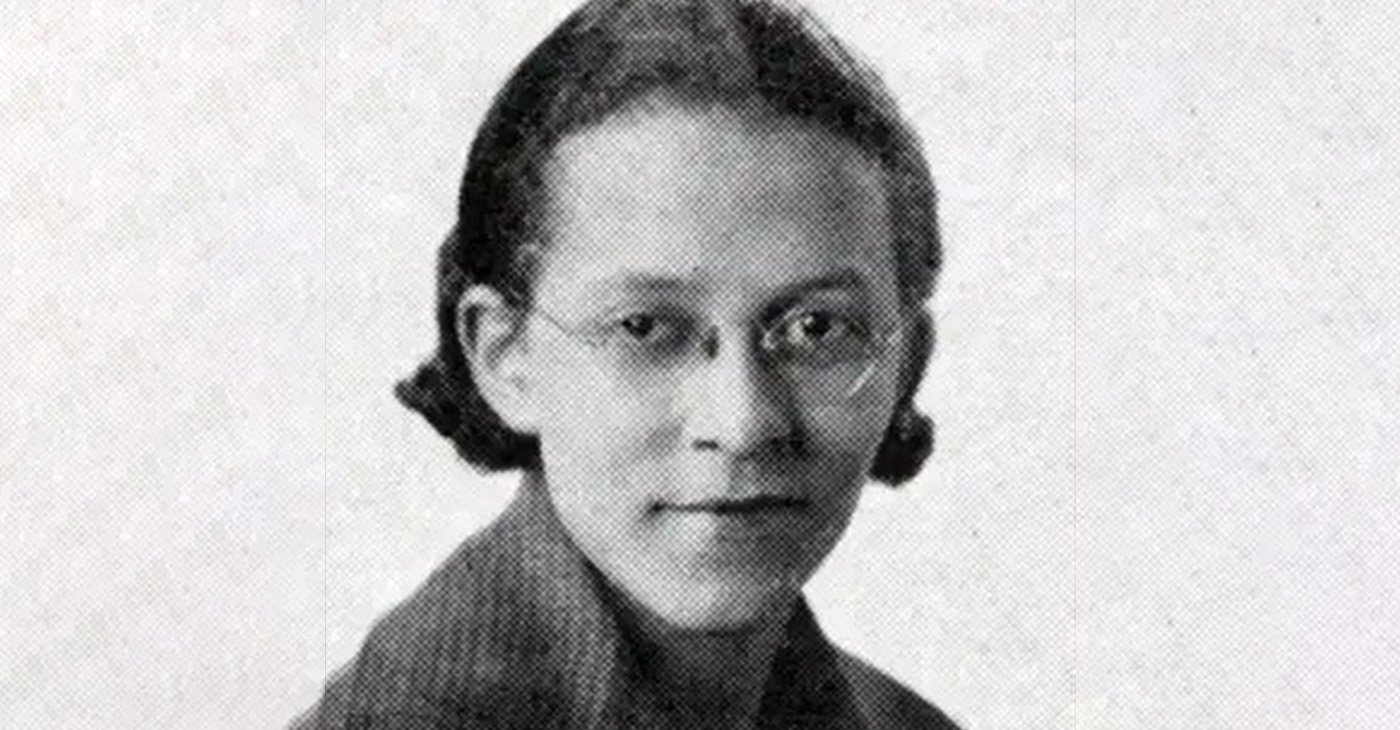Housing
HUD Cautions Against Denying Housing Over Criminal Record
By Donna Kimura, www.housingfinance.org
Landlords with a blanket policy of denying housing to people with criminal records are in violation of the Fair Housing Act, according to the Department of Housing and Urban Development (HUD).
“The Fair Housing Act prohibits both intentional housing discrimination and housing practices that have an unjustified discriminatory effect because of race, national origin, or other protected characteristics,” said HUD in newly issued guidance.
“Because of widespread racial and ethnic disparities in the U.S. criminal justice system, criminal history-based restrictions on access to housing are likely disproportionately to burden African-Americans and Hispanics,” according to HUD.
“While the Act does not prohibit housing providers from appropriately considering criminal history information when making housing decisions, arbitrary and overbroad criminal history-related bans are likely to lack a legally sufficient justification.”
The guidance stresses that arrests are not the same as convictions. A housing provider that denies housing to persons on the basis of arrests not resulting in conviction cannot prove that the exclusion actually assists in protecting resident safety and/or property, said HUD.
When there are applicants with convictions, landlords must still prove that a policy to exclude them is necessary and nondiscriminatory.
“A housing provider that imposes a blanket prohibition on any person with any conviction record—no matter when the conviction occurred, what the underlying conduct entailed, or what the convicted person has done since then—will be unable to meet this burden.” said HUD.
“I am so thrilled,” said JoAnne Page, president and CEO of The Fortune Society in New York City, which works with people who have been incarcerated. “We have been fighting for this, fighting against a blanket discrimination with people with records.”
Housing and employment are foundations for people and families, and it’s hard to get and hold employment without housing, she told Affordable Housing Finance.
The guidance, she said, tells housing providers to look at the individual, how long ago the crime was, and what the person has done recently.
Page said she is also hopeful HUD’s action will help reunite or keep families together. In some cases, a family member such as a father or son isn’t allowed to live with his family because he has a record.
The guidance is largely consistent with what the industry has been talking about for a long time, according to Amy Glassman, an attorney with the Ballard Spahr law firm in Washington, D.C.
Owners have to be careful and thoughtful in their screenings when they are using criminal background checks so their policies don’t have an unnecessary discriminatory effect.
“It’s a hard balance,” Glassman told AHF. “Both owners and residents of apartment complexes have a legitimate interest in ensuring they live in a safe environment. There are certain criminal backgrounds indicative of past violent behavior or behavior that might take away from the safety of the residents. In that situation, I think the owners have legitimate needs to use criminal convictions to screen, but they also have to be very thoughtful about it.”
Activism
We Fought on Opposite Sides of the Sheng Thao Recall. Here’s Why We’re Uniting Behind Barbara Lee for Oakland Mayor
Today, we are coming together to do all we can to make sure Barbara Lee is elected Mayor in the April 15 Oakland special election. Here’s why. Now more than ever, Oakland needs a respected, hands-on leader who will unite residents behind a clear vision for change. The next mayor will have to hit the ground running with leaders and stakeholders across our political divide to get to work solving the problems standing in the way of Oakland’s progress. Job No. 1: improving public safety. Everyone agrees that all Oaklanders deserve to feel safe in their neighborhoods. But sadly, too many of us do not.

By Robert Harris and Richard Fuentes
Special to The Post
The City of Oakland is facing a number of urgent challenges, from housing and public safety to a pressing need for jobs and economic development. One of us, Robert Harris, supported the November recall vote that removed Mayor Sheng Thao from office. Meanwhile, Richard Fuentes believed the recall was the wrong strategy to tackle Oakland’s challenges.
Today, we are coming together to do all we can to make sure Barbara Lee is elected Mayor in the April 15 Oakland special election. Here’s why.
Now more than ever, Oakland needs a respected, hands-on leader who will unite residents behind a clear vision for change.
The next mayor will have to hit the ground running with leaders and stakeholders across our political divide to get to work solving the problems standing in the way of Oakland’s progress.
Job No. 1: improving public safety. Everyone agrees that all Oaklanders deserve to feel safe in their neighborhoods. But sadly, too many of us do not.
During her three decades in the state Legislature and Congress, Lee made public safety a priority, securing funding for police and firefighters in Oakland, delivering $15.8 million in community safety funding, and more. Today, she has a plan for making Oakland safer. It starts with making sure police are resourced, ready, and on patrol to stop the most dangerous criminals on our streets.
Oakland residents and business owners are feeling the impact of too many assaults, smash/grabs, retail thefts, and home robberies. Lee will increase the number of police on the streets, make sure they are focused on the biggest threats, and invest in violence prevention and proven alternatives that prevent crime and violence in the first place.
In addition, on day one, Barbara Lee will focus on Oakland’s business community, creating an advisory cabinet of business owners and pushing to ensure Oakland can attract and keep businesses of all sizes.
The other top issue facing Oakland is housing and homelessness. As of May 2024, over 5,500 people were unhoused in the city. Oaklanders are just 25% of the population of Alameda County, but the city has 57% of the unhoused population.
Unhoused people include seniors, veterans, single women, women with children, people who suffer physical and mental illness, unemployed and undereducated people, and individuals addicted to drugs. Some are students under 18 living on the streets without their parents or a guardian. Research shows that 53% of Oakland’s homeless population is Black.
Starting on her first day in office, Lee will use her national profile and experience to bring new resources to the city to reduce homelessness and expand affordable housing. And she will forge new public/private partnerships and collaboration between the City, Alameda County, other public agencies, and local nonprofits to ensure that Oakland gets its fair share of resources for everything from supportive services to affordable housing.
Besides a public safety and housing crisis, Oakland has a reputational crisis at hand. Too many people locally and nationally believe Oakland does not have the ability to tackle its problems.
Lee has the national reputation and the relationships she can use to assert a new narrative about our beloved Oakland – a vibrant, diverse, and culturally rich city with a deep history of activism and innovation.
Everyone remembers how Lee stood up for Oakland values as the only member of Congress not to authorize the disastrous Iraq War in 2001. She has led the fight in Congress for ethics reform and changes to the nation’s pay-to-play campaign finance laws.
Lee stands alone among the candidates for mayor as a longtime champion of honest, transparent, and accountable government—and she has the reputation and the skills to lead an Oakland transformation that puts people first.
The past few years have been a trying period for our hometown.
Robert Harris supported the recall because of Thao’s decision to fire LeRonne Armstrong; her refusal to meet with certain organizations, such as the Oakland Branch of the NAACP; and the city missing the deadline for filing for a state grant to deal with serious retail thefts in Oakland.
Richard Fuentes opposed the recall, believing that Oakland was making progress in reducing crime. The voters have had their say; now, it is time for us to move forward together and turn the page to a new era.
The two of us don’t agree on everything, but we agree on this: the next few years will be safer, stronger, and more prosperous if Oaklanders elect Barbara Lee as our next mayor on April 15.
Robert Harris is a retired attorney at PG&E and former legal counsel for NAACP.
Richard Fuentes is co-owner of FLUID510 and chair of the Political Action Committee, American Federation of State, County, and Municipal Employees (AFSCME) Council 57.
Activism
District Delegates to State Democratic Party Central Committee Meeting Celebrate Election Victory
Delegates and elected officials were excited for the future of the Democratic Party and making its focus on 1) creating more affordable housing, 2) supporting education, 3) helping working families, and 4) protecting the environment and addressing climate change, with a focus on practical and realistic policy efforts that could have a meaningful impact.

By Ben Gould
Special to The Post
Winners of the February 2025 Assembly District Election Meetings (ADEM) for Assembly Districts 14 and 18 met on Sunday, March 16 to discuss priorities for the California Democratic Party convention in Anaheim coming up in May.
The winners for Assembly District 18 are Genice Jacobs, Bobbi Lopez, Shawn Danino, Ben Gould, Zac Bowling, Nate Hanson, Cathy Adams, Sam Gould, Lauren Wilson, Ashlee Jemmott, and former Oakland School Board Director Sam Davis.
The winners for Assembly District 14 are: Sarah Bell, Neil Tsutsui, Hercules Councilmember Dilli Bhattarai, former Berkeley School Board Director Laura Babitt, former Piedmont Mayor Teddy Gray King, and former Albany Mayor Nick Pilch.
They were joined by Oakland Councilmember Janani Ramachandran, Emeryville Councilmember Courtney Welch, and BART Director Victor Flores to help celebrate their victory.
Delegates and elected officials were excited for the future of the Democratic Party and making its focus on 1) creating more affordable housing, 2) supporting education, 3) helping working families, and 4) protecting the environment and addressing climate change, with a focus on practical and realistic policy efforts that could have a meaningful impact.
Arts and Culture
Beverly Lorraine Greene: A Pioneering Architect and Symbol of Possibility and Progress
Greene graduated from the University of Illinois at Urbana-Champaign in 1936 with a degree in Architecture — a remarkable accomplishment for an African American woman at the time. She was never discouraged by the racial and gender discrimination that saturated her field.

By Tamara Shiloh
In the mid-20th century, Beverly Lorraine Greene was recognized as the first African American woman licensed to practice architecture in the United States.
Greene was born on Oct. 4, 1915, in Chicago during an era when opportunities for African Americans, particularly women, were severely limited.
Her parents, James and Vera Greene, were deeply invested in her education, instilling in her a belief in the power of intellect and perseverance. She grew up during the Great Migration that transformed Chicago starting in 1900.
Greene graduated from the University of Illinois at Urbana-Champaign in 1936 with a degree in Architecture — a remarkable accomplishment for an African American woman at the time. She was never discouraged by the racial and gender discrimination that saturated her field.
Greene continued her education, earning a master’s degree in City Planning and Housing in 1937, also from the University of Illinois. Her ambition was not merely to design structures but to shape spaces that fostered equity and community. In 1942, she became the first African American woman licensed as an architect in the United States, obtaining her credentials in Illinois. This groundbreaking achievement, however, did not translate immediately into job opportunities.
Early in her career, she faced significant discrimination from firms unwilling to hire a Black woman. However, her determination never wavered. In 1945, Beverly moved to New York City, a place she believed could offer broader professional opportunities.
She joined the architectural department of the New York City Housing Authority, focusing on affordable housing projects. Her work during this time reflected her commitment to using architecture as a tool for social justice, ensuring that marginalized communities had access to well-designed, dignified living spaces.
Greene’s talents soon drew the attention of prominent firms. She was hired by Isadore Rosenfield, a respected architect known for designing hospitals. She contributed to the design of healthcare facilities, including the modernization of Harlem Hospital. Her portfolio expanded in collaboration with architectural personalities such as Marcel Breuer and Edward Durell Stone.
Notably, she worked on the prestigious UNESCO headquarters in Paris — a landmark project that brought her skills to an international stage. Her involvement underscored her ability to navigate the intricacies of large-scale, global projects, proving that her talents transcended the limitations society sought to impose.
Greene’s career was tragically cut short when she passed away unexpectedly in 1957 at the age of 41. Though her life was brief, her impact was profound. She shattered entrenched barriers, paving the way for future generations of Black architects and women in the field.
-

 #NNPA BlackPress4 weeks ago
#NNPA BlackPress4 weeks agoTarget Takes a Hit: $12.4 Billion Wiped Out as Boycotts Grow
-

 Activism4 weeks ago
Activism4 weeks agoUndocumented Workers Are Struggling to Feed Themselves. Slashed Budgets and New Immigration Policies Bring Fresh Challenges
-

 #NNPA BlackPress4 weeks ago
#NNPA BlackPress4 weeks agoBREAKING Groundbreaking Singer Angie Stone Dies in Car Accident at 63
-

 Activism4 weeks ago
Activism4 weeks agoOakland Post: Week of February 26 – March 4, 2025
-

 #NNPA BlackPress4 weeks ago
#NNPA BlackPress4 weeks agoNAACP Legend and Freedom Fighter Hazel Dukes Passes
-

 Arts and Culture4 weeks ago
Arts and Culture4 weeks agoBeverly Lorraine Greene: A Pioneering Architect and Symbol of Possibility and Progress
-

 #NNPA BlackPress4 weeks ago
#NNPA BlackPress4 weeks agoTrump Kicks the Ukrainian President Out of the White House
-

 #NNPA BlackPress4 weeks ago
#NNPA BlackPress4 weeks agoApple Shareholders Reject Effort to Dismantle DEI Initiatives, Approve $500 Billion U.S. Investment Plan













































